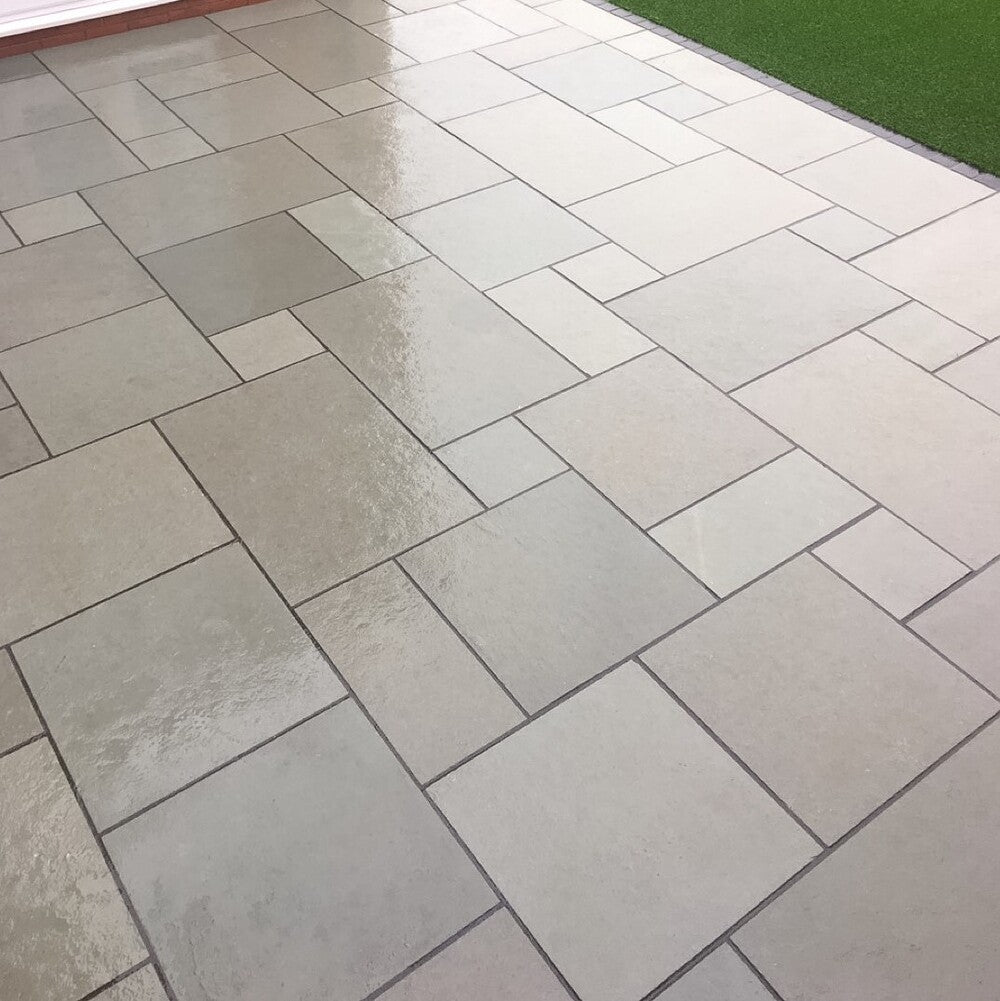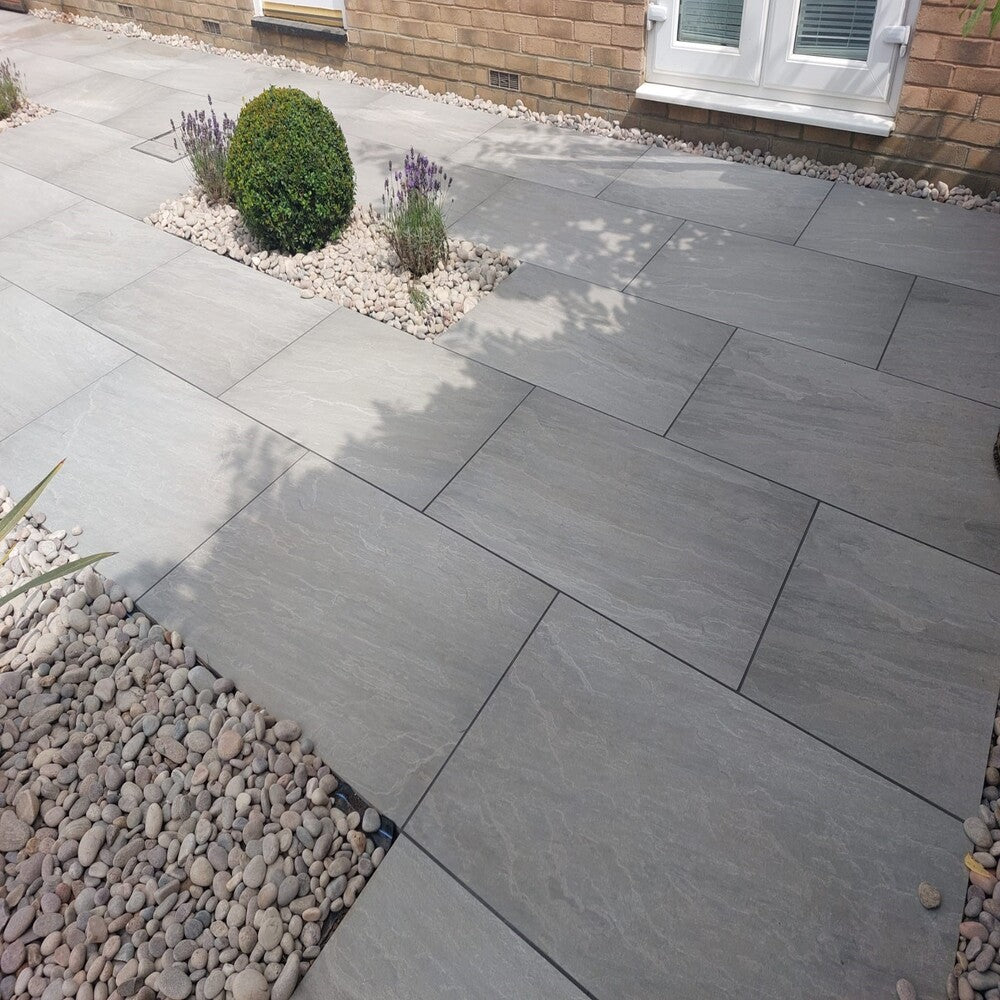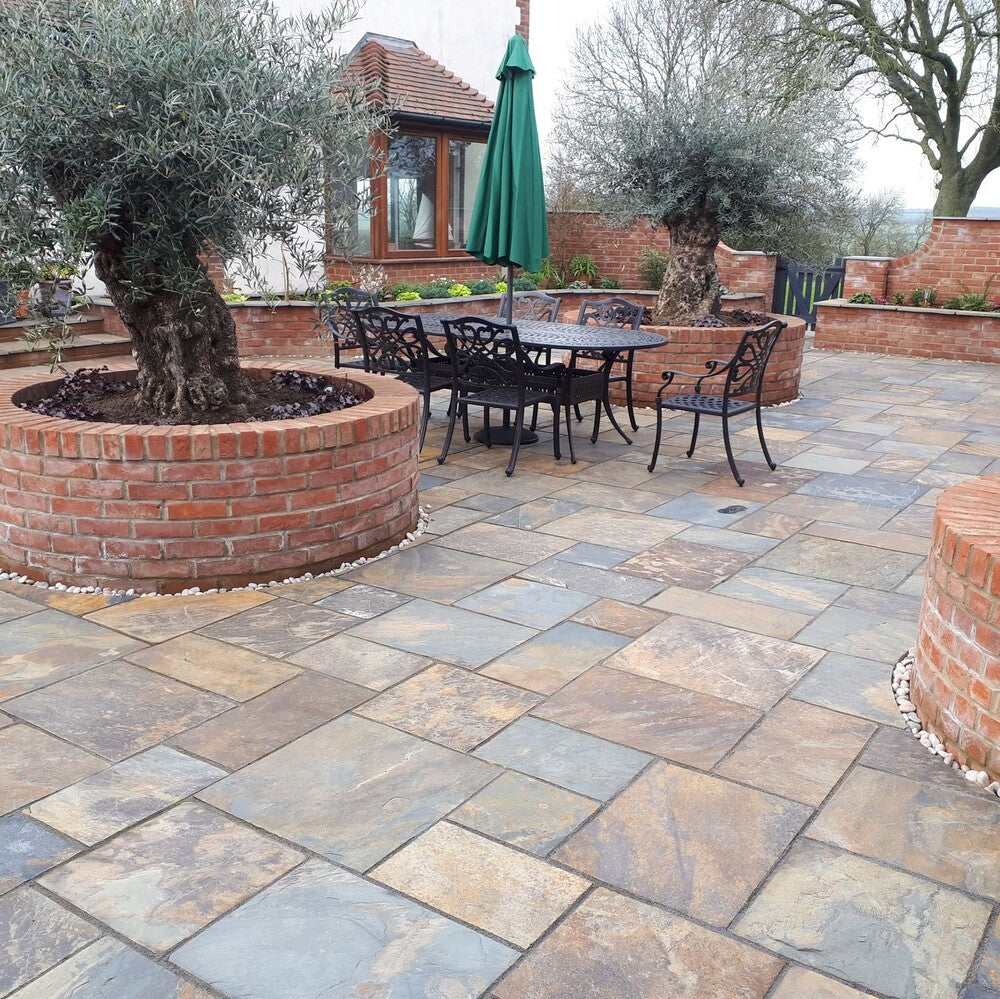So, you've decided you want to install a new patio in your garden - a great choice!. Patios are a perfect space for entertaining or relaxing, and it also reduces the amount of more laborious maintenance work you are likely to need to do, such as lawn care.
Once the layout has been decided, next you need to choose the material you would like to use. This will vastly change the appearance and characteristics of your project, so it pays to put a bit of effort into researching what you should go for.
With a huge variety available, it’s a tough to decision to make. Each material has its own unique style, colours and textures which can transform the look of your patio. Man-made stone usually comes in two forms, concrete and porcelain while natural stone paving has numerous variations.

Man Made stone: Concrete Paving Slabs
Recently, concrete has become available with a multitude of surface textures, colours and sizes often mimicking the natural stone look. These days it is often difficult to tell what is a concrete slab and what is natural solely based on visuals. But the two have very different characteristics, so it is important to know the difference between the two.

Concrete Paving Slabs are manufactured
Concrete paving is a manufactured tile made by compressing a mix of raw materials in a mould which are then dried or fired. As concrete slabs are manufactured and not quarried, you get a lot more consistency with regards to size and colour, generally lending itself to a more modern and contemporary design.
Concrete Paving Slabs need processing to achieve a natural look
With the budget ranges, these tend to be very uniform and lack any type of character. The dearer ranges often go through further processing than just the shaping. The surface texture and edges are altered to give it a more natural, weathered look. As we said, the premium grade concrete slabs are very difficult to tell apart from natural.
With coloured concrete, there is a pigment or dye added at the time of manufacturing and is susceptible to fading over time especially in high traffic areas. Natural stone fades, but simply not at the same rate. A dye is going to fade at a much quicker rate.

Concrete paving slabs will cost less to install
Installation is generally less expensive compared to the natural stone due to the uniformity of the sizes and less preparation required to lay them.

Man Made Stone: Porcelain Paving Slabs
Manufactured from kiln-fired clay, these man-made precision cut tiles have become increasingly popular for outdoor spaces due to its huge list of benefits. With ranges being available for both indoor and outdoor, the seamless transition from one area to another thus extending your living space, is on the rise.

Porcelain Paving slabs are extremely resistant
The tiles are fade, stain, frost and scratch-resistant, making them perfect for a low maintenance option as a quick wash will bring them back to their original state. European regulated porcelain will carry an R11 rating for an enhanced anti-slip surface, ideal for any area likely to be wet.

Porcelain Paving Slabs are on trend
Porcelain has a reputation of being a very modern and contemporary stone but with the increase in popularity the range of colours and styles has broadened dramatically, making them an excellent choice for all types of gardens.
All these benefits do come at price. Porcelain, as a rule, is about twice as expensive as natural paving to purchase.
Be sure to check Primethorpe's porcelain paving selection here.

Natural Stone Paving Slabs
With natural stone, you have a huge range of materials which offer a vast array of surfaces, colours and edges giving you infinite possibilities in your design. It’s this natural variation that makes for a more appealing choice.
Whether it’s for:
- patio,
- surrounding a swimming pool,
- garden path,
- or stepping-stones,
Sandstone, slate, limestone and granite are the most common natural materials all with their own unique properties. Natural paving, for the most part, is highly durable and can cope with the harshest weather conditions. It is formed over thousands of years withstanding the elements nature can deliver which makes them an ideal choice for high foot traffic areas.
Another appeal of natural stone is the ageing process as it often looks better with age and weathering. Of course, keeping it clean with occasional maintenance and sealing the stone will keep the stones looking fresher for longer.

Man Made Stone vs Natural Stone In Conclusion
There are a number of materials to choose from when creating a new patio. Here are the quick pros and cons of all the options discussed here:
- Concrete - Pros: Easy to install, lots of choice, widely available Cons: Quick to fade, easily damaged, very large carbon footprint.
- Porcelain - Pros: Very low maintenance, no fade. Cons: expensive, difficult to install.
- Natural stone - Pros: All round good option, lots of choice, easy to install. Cons: natural so can be varied or inconsistent between batches.





